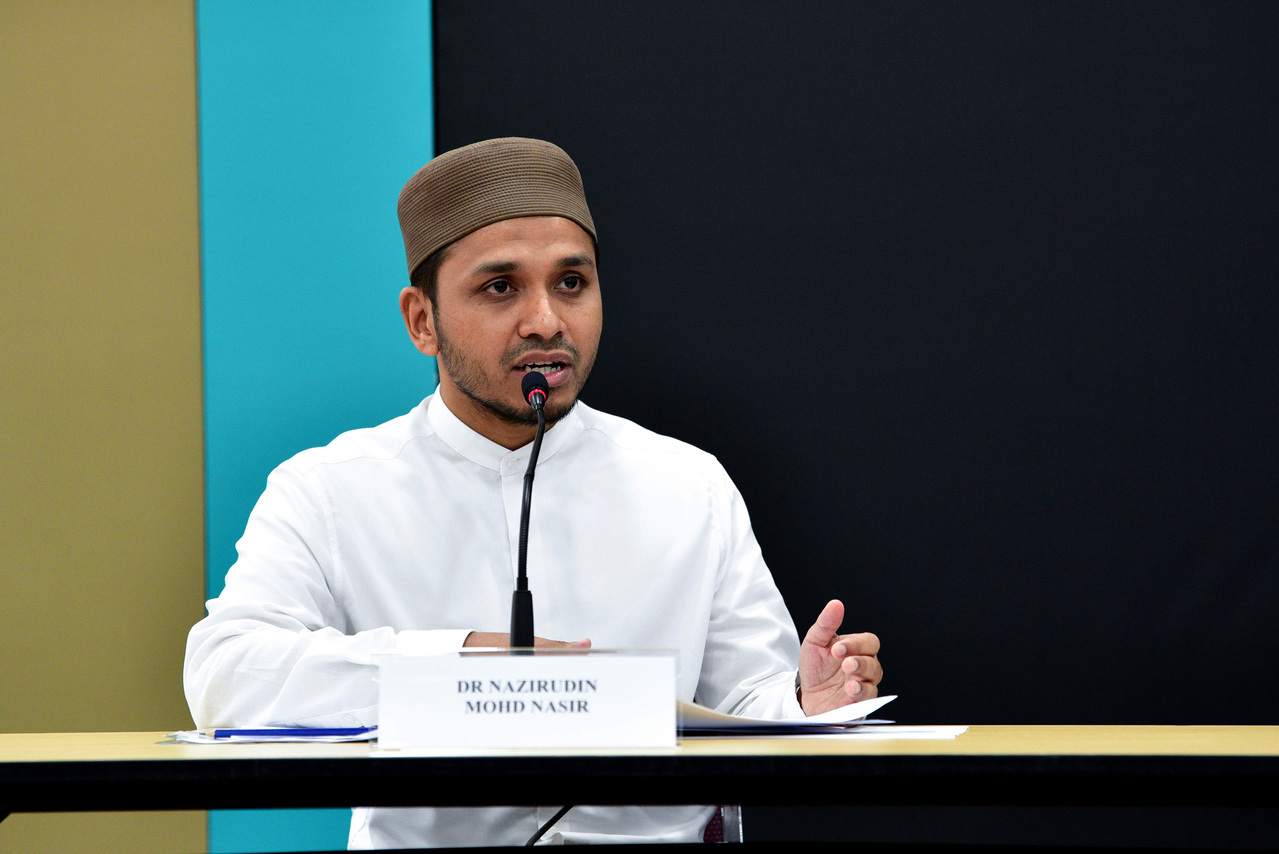Religious leaders cannot be ambivalent on jokes harming women: Singapore Mufti
Sign up now: Get ST's newsletters delivered to your inbox

Mufti Nazirudin Mohd Nasir stressed the need for asatizah to be clear on what constitutes unacceptable behaviour.
PHOTO: MUIS
SINGAPORE - There is a need to re-educate the Muslim community here on unacceptable behaviours, and Islamic religious leaders must take firm action against miscreants, said Mufti Nazirudin Mohd Nasir on Wednesday (June 2).
Dr Nazirudin, who is Singapore's highest Islamic authority here, had strong words for the Muslim community during a virtual Hari Raya gathering with more than 780 asatizah, or Islamic religious leaders.
This comes after an online poll surfaced last week sexualising female asatizah, with a view to commit sexual violence against them.
Dr Nazirudin stressed the need for asatizah to be clear on what constitutes unacceptable behaviour.
"We cannot remain ambivalent when harming women is condoned as a joke, or when victims are blamed and perpetrators are let off," he added.
"We need to re-educate our community, be very clear on what are unacceptable behaviours, and be firm in taking actions against those who have crossed the line."
The poll, which was on social media platform MeWe, has been removed.
Screenshots of the poll showed at least 12 female asatizah being ranked by 1,005 participants. The Straits Times understands that about 20 to 30 asatizah were ranked in it.
Community groups, politicians and the Islamic Religious Council of Singapore (Muis) called the poll offensive to women and stressed that respect and safety for women must be the norm.
Several netizens have alleged that those who started the poll were students studying to become asatizah, but this has not been confirmed by Muis.
The police are currently investigating the case.
Cases like the poll, which constitute harassment and disrespect to women, show a lack of integrity in the community, said Dr Nazirudin. While there are few such cases, they are enough to worry and cause alarm.
The leadership role of an asatizah is a public one, which means that their actions have great impact and consequences, he said.
"There are questions on what we could have done to prevent this, and how we should address this as a community."
Dr Nazirudin said the Asatizah Recognition Scheme (ARS), which requires religious teachers to abide by an ethical code, remains a "very important institution".
"It is only when we take this very seriously that we can restore full faith and confidence in the system and in the moral leadership of asatizah."
He noted that as challenges the community face become more complex, and as choices become more diverse and complicated, the guidance that asatizah offer will also follow suit and no longer be so straightforward.
But the moral leadership from asatizah will remain effective and credible as long as they do their work with integrity, courage and empathy, said Dr Nazirudin.
He also asked asatizah to disseminate messages of hope and offer a positive take and perspective on the challenges that the community face.
Support and resources, whether in terms of content or technical know-how, will be made available for those who wish to do so via social media, said the Mufti.


